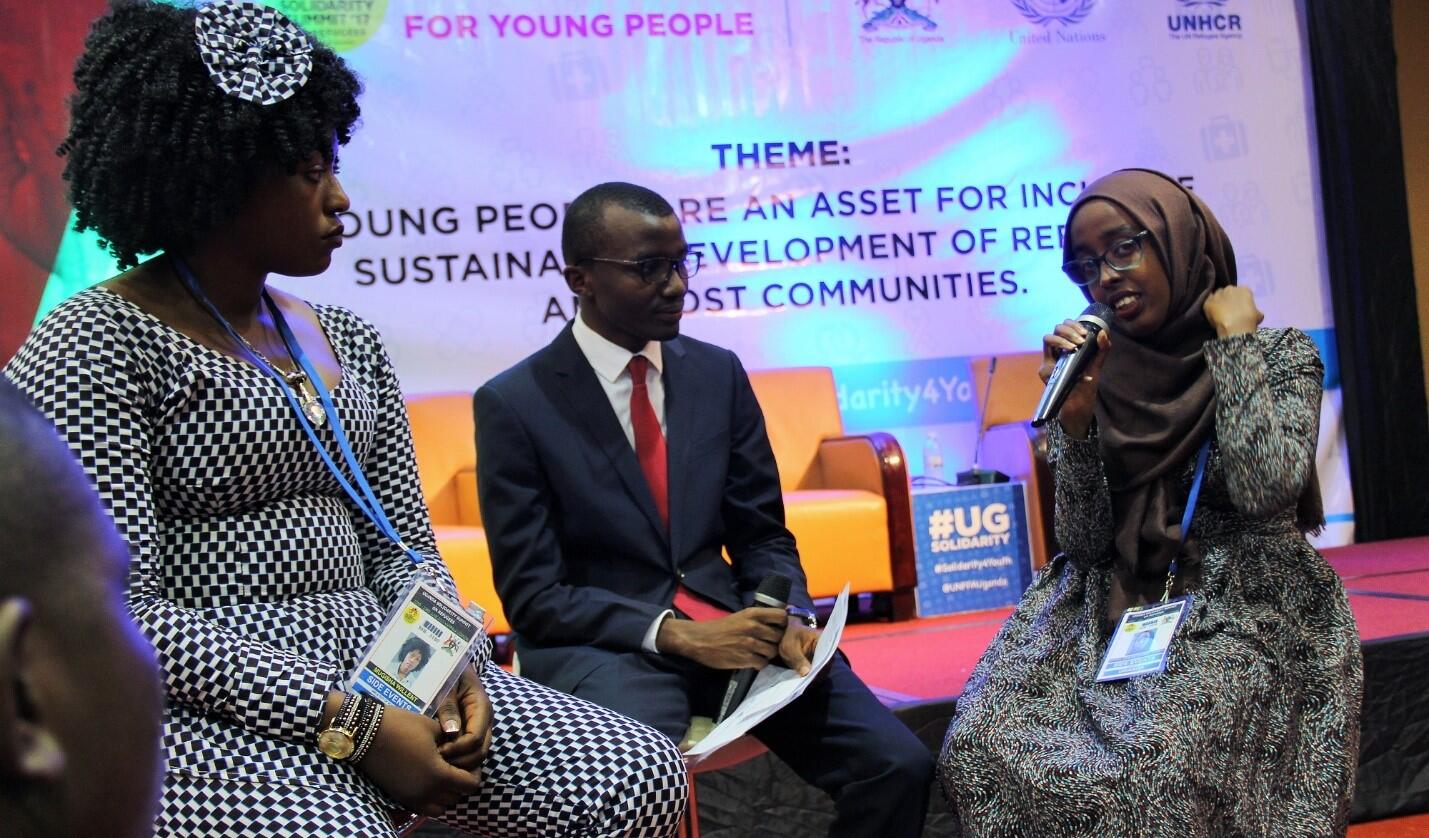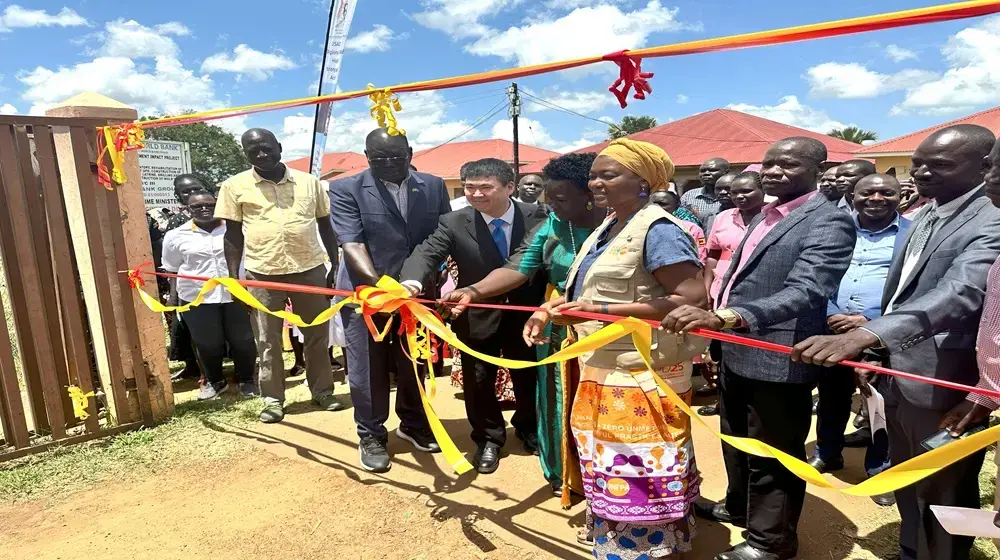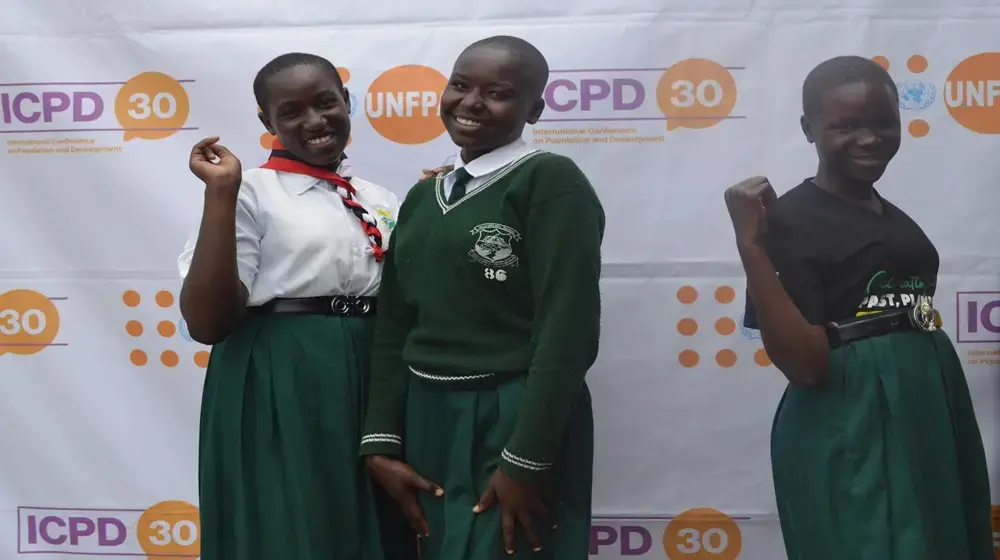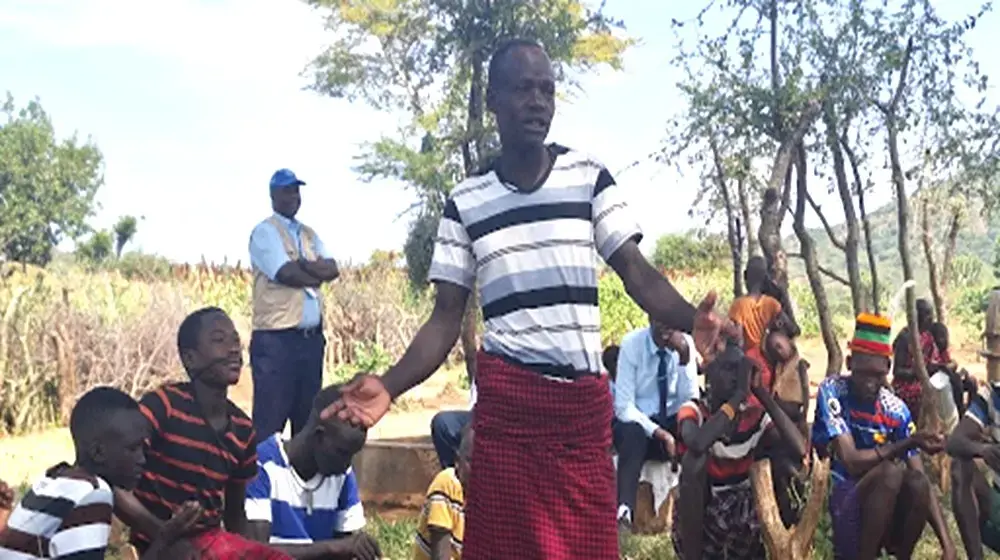Willent Mugisha fled the war in Goma, Democratic Republic of Congo as a little girl 17 years ago. Since then, she has lived with her family in Kyangwali refugee settlement in Hoima, Western Uganda. Pregnant at age 18, Willent was determined not to let life get her down. Five years ago, together with a group of girls in Kyangwali, she managed to set up a small catering business that helps meet hers and her daughter’s basic needs.
“Life in a refugee settlement is very hard. I wanted so much to go to university after I completed my Senior Four but could not afford to. It is during the time I was away from school that I got pregnant,” Willent explained.
A scholarship from Windle Trust with support from UNHCR is what changed her life. After completing a two- year course in Catering and Hotel Management she mobilised ten other girls to start a business. Willent is one of the young refugees that shared her story with fellow young people, the United Nations, government and civil society officials at a side event on youth held on the sidelines of the Uganda Solidarity Summit on Refugees from June 22 to 23.
Under the theme Young people are an asset for inclusive sustainable development of refugee and host communities, the side event was co-hosted by UNFPA and the Royal Danish Embassy in partnership with IOM, Plan International, Reach A Hand Uganda, UNCDF, UNDP, UNHCR and UNICEF. The event brought together over 100 participants, including 25 young people from refugee and host communities in Uganda.

The aim of the two events was to provide a platform for dialogue on how Uganda’s youthful refugee and host population can be turned into an asset for resilience and sustainable development. Uganda is home to 1.2 million refugees from South Sudan, Burundi and the Democratic Republic of Congo; and other countries. About 6 in 10 of the refugees are young people below the age of 18.
Linking health and development
One of the issues discussed at length at the side event was the need to build young people’s entrepreneurship skills to enable them become economically independent. Participants were in agreement that for young people to achieve economic independence, there must be deliberate efforts to address their health concerns including sexual and reproductive health.
For UNFPA Representative, Alain Sibenaler, making the connection between young people’s health and their prospects for wealth was extremely important. “There is no wealth without health. It’s as simple as that,” he said.
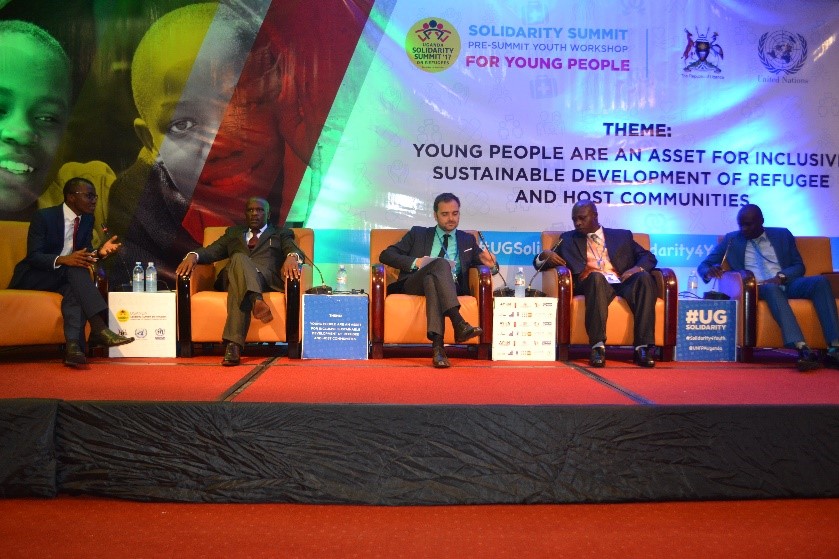
As for Willent, having a source of livelihood and being economically independent has inspired her to reach out to her peers. She talks to girls in the refugee camp, advising them on the dangers of child marriage and teenage pregnancy. She believes that as long as young people are given a chance they can pull themselves out of whatever situation they find themselves in and contribute to the development of their communities.
Moving forward
Mr. Sibenaler acknowledged that the UN and its partners could do even more to open up spaces for young people’s participation, and to create an enabling environment for that to happen. He noted that UNFPA is working on creating an initiative —social change entrepreneurs — where young people lead on developing models of social business and emphasised that this initiative would also be open to young refugees.
H.E. Mogens Pedersen, the Ambassador of Denmark encouraged young people to not only focus on what donors can do for them but to also think critically about their role in development.
“It is important for us to hear the ideas you have for your own future and how you can be constructive in creating this future,” Mr. Pedersen said. In addition to highlighting issues affecting refugees and host communities, the youth side event paved the way for supplementary pledges of support towards programming for young people. The Royal Danish Embassy, the Embassy of the Kingdom of the Netherlands, the European Union Delegation in Kampala all made commitments of support.
Compiled by Martha Songa and Raquel Polomino Gonzalez, UNFPA

